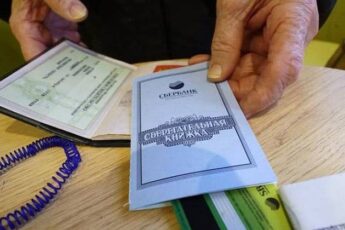ChatGPT сказал:
When my mother passed away, the loss hit me harder than I ever expected. I knew it would hurt, but I could never have predicted the unexpected twists that would follow—especially within my marriage.
My husband, Peter, and my mother never shared the closest bond. While she was always polite, her demeanor around him was distant, even cold at times. Her tight smiles and subtle, skeptical glances never went unnoticed. I used to brush it off, explaining it away as her instinct to protect me. “He’s not perfect, Mom, but he’s mine,” I would tell her. She’d smile, like she knew something I didn’t.
After my mother suddenly passed from a heart attack, I was left to navigate my grief, and it felt overwhelming. I regretted all the missed chances to talk to her, all the times I’d prioritized keeping the peace at home instead of reaching out to her. I mourned not just her absence, but the things left unsaid between us.
Weeks later, I received an unexpected call from her lawyer. My mother had left me everything—her home, her savings, her retirement accounts. The total value exceeded $400,000. I was in shock. She’d always lived simply, and I never imagined she’d accumulated so much.
At first, Peter played the role of the supportive husband. He comforted me, made me tea, and even took over dinner a few nights. He would say things like, “She just wanted to take care of you.” I believed him.
But soon, the suggestions started. A new car. A vacation by the beach. A bigger, more luxurious home. He said he wanted me to enjoy life again, but his urgency made me uneasy. I wasn’t ready to make such big decisions—I needed time, not excess.
When I told him I wanted to take things slowly and be thoughtful about the choices ahead, his attitude changed. The warmth faded. He grew distant, and eventually, he moved into the guest room, claiming I needed “space.” But I could sense there was something more to it.
Then one night, he came into the kitchen and said, “I think we should separate.”
I stood there, stunned. “Separate?”
He nodded. “You’ve changed. This isn’t working anymore.”
I could have argued. Instead, I calmly walked to my office, grabbed the folder my mother’s lawyer had given me, and handed it to him. Inside was something I hadn’t fully understood at first—a clause in her will.
I slid the folder toward him. “You should read this.”
He read the page, his expression shifting from confusion to disbelief.
It said:
“If my daughter is married at the time of my death, she will not receive access to any inheritance unless and until she is legally divorced. No spouse or third party may claim or access any portion of my estate.”
He looked up at me. “So, if we… separate, you get the inheritance?”
I nodded. “Yes. If we stayed married, it would have gone elsewhere.”
He didn’t say anything more.
A month later, we quietly finalized the separation. No fights, no bitterness. He moved on, and I stayed.
With the inheritance, I renovated my mother’s house—the one where I grew up. I also took the solo trip I’d always dreamed of. For the first time in a long while, I felt light and free.
As for what my mother saw in Peter, I’ll never know for sure. But I do know this: she wanted to protect me—not just her wealth. In doing so, she gave me a second chance to live a life I hadn’t even realized I needed.
Thank you, Mom. You didn’t just leave me with a legacy—you gave me the strength, peace, and clarity to begin again.






